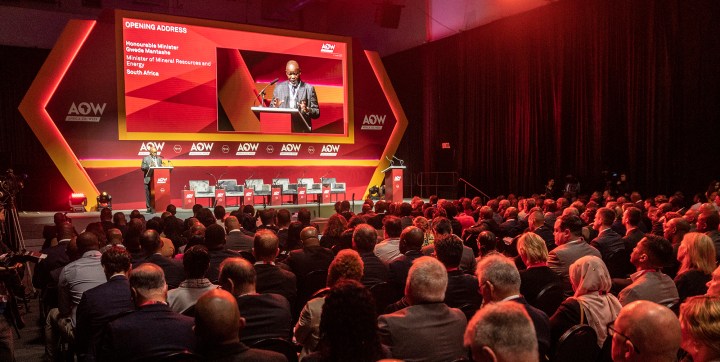BUSINESS REFLECTION
After the Bell: Louder please, we can’t hear the renewable energy sector at the back

How can we mobilise the switch to greener energy at the same speed as developed countries when we are still struggling to ensure basic access to energy for millions?
Cape Town has been playing host to Africa Oil Week over five days, with more than 50 ministers and government leaders, more than 125 leading speakers and more than 2,000 senior delegates.
However, in a world increasingly concerned with sustainability, it would have been crass not to acknowledge the growing trend towards renewable energy.
No problem. The Green Energy Africa Summit was hosted at the same venue, presumably by the same conference organisers.
While several speakers, including the South African Banking Association, proudly proclaimed that there was “no shortage of money” to fund renewable energy initiatives (and this could well be true), there was a distinct contrast between the two events.
The main halls were taken over by Africa Oil Week, with massive loudspeakers, a big stage and hundreds of delegates in attendance. The renewable energy guys, on the other hand, were shoved into a much smaller conference room on the sidelines (literally), with a tiny stage and crappy microphones that did little to amplify sound.
The result was that, although speakers had interesting insights to share, most of the time they could barely be heard unless (as some of them eventually did) they were prepared to raise their voices significantly.
Between the bedroom scene protests by environmental activists on the streets (as my colleague Tim Cohen would say, I am not making this up), the push by the renewable energy pundits for clean energy, and the various suit-clad delegates walking around with stickers on their suits proudly proclaiming, “I love fossil fuels” – the entire affair was rather surreal, to be honest.
And maybe it’s a clear reflection of just where we are as a continent.
The Just Energy Transition sounds great on paper but, as many noted at the conference, Africa is miles behind the rest of the world.
How can we mobilise the switch to greener energy at the same speed as developed countries when we are still struggling to ensure basic access to energy for millions?
As one delegate so succinctly observed, it’s like asking a toddler to put his best foot forward in a world-class marathon.
The good news is that, as per a report released by Deloitte this week, the African continent boasts 60% of the world’s best solar (10TW), hydro (35GW), wind (110GW) and geothermal energy sources (15GW).
The International Energy Agency estimates that Africa can produce 5,000 megatonnes of hydrogen annually – the equivalent of the current total annual global energy supply.
Big numbers but, as they say, talk is cheap, and the renewable energy sector – much like its delegates at the conference – is going to have to raise its voice significantly before we see large-scale transition in Africa.
Good investing. DM




















“How can we mobilise the switch to greener energy at the same speed as developed countries when we are still struggling to ensure basic access to energy for millions?”
In the same way that Africa gained access to mass communication – by skipping out a whole step. Very few telephone lines to see, but everyone has a cell phone.
This is a false choice. Building large infrastructure to serve remote communities is neither quick nor cheap, and impossible to finance given the state of national finances. Distributed generation and micro grids can be rolled out quickly, at an affordable pace and scale that the private sector can manage. Witness the speed that South Africa’s businesses have reacted to the lifting of restrictions, at no cost to the government, compared with what has gone before.
The only reason fossil fuels are favoured are because rent seeking governments like big flagship projects that they benefit directly from.
Why would you hear them, they’re insignificant and inconsequential. They don’t have a snowball’s hope in hell of even coming close to meeting the world’s energy needs. All they are a fanciful experiment that is yet to produce workable results (not to mention the environmental devastation the cause extracting the rare-earth minerals they need to work), until this changes they can stay in the back where they belong
Uruguay is at 98% renewables, and their electricity price in $/kWh has decreased by over 30% over the last 10 years. It is totally possible – IF IT IS DRIVEN FROM THE TOP. That is our problem! Google “How did Uruguay cut Carbon Emissions”.